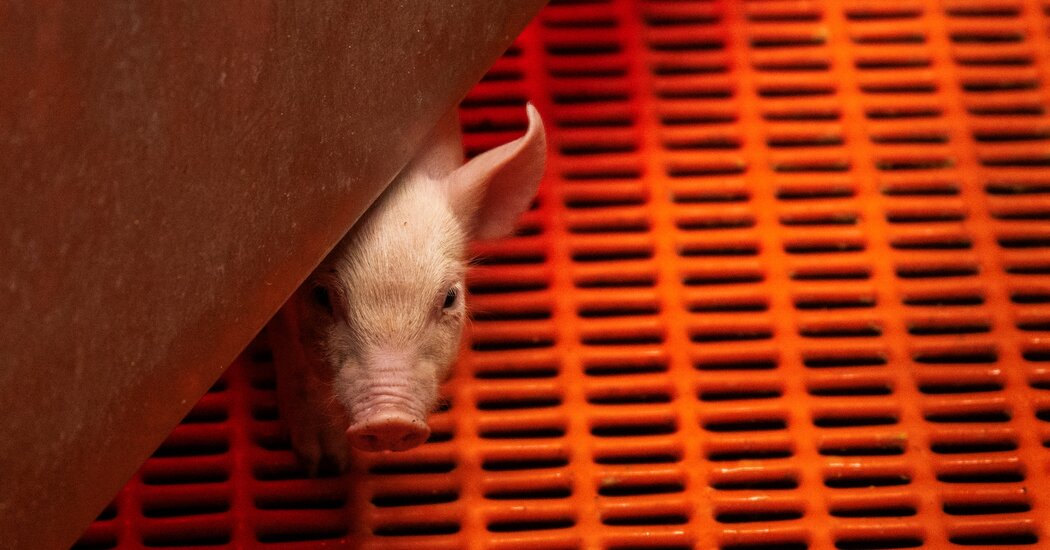The U.S. Food and Drug Administration has given the green light to two biotechnology companies for clinical trials that will transplant organs from genetically modified pigs into people with kidney failure. If successful, these studies could lead to the broader use of cross-species transplantation, a dream of medical scientists for centuries.
One of the companies, United Therapeutics Corporation, will begin its trial with six patients, but that number could eventually rise to 50. The other, eGenesis, said it would begin with three patients and grow the study from there.
“We are entering a transformative era in organ transplantation,” said Mike Curtis, the president and chief executive of eGenesis.
Over the past three years, five patients have been known to receive organs from pigs engineered by these companies — two who received hearts and three who received kidneys. But these surgeries were not part of a formal clinical trial. Most of the patients were critically ill and their transplants were allowed because they had run out of other treatment options.
The longest survivor to date is Towana Looney, a 53-year-old woman from Alabama who received a pig’s kidney at NYU Langone Health in New York City in November. The four other organ recipients, who were far sicker when they underwent the transplants, died shortly after the procedures.
More than 550,000 Americans have kidney failure and require dialysis, and about 100,000 of them are on a waiting list to receive a kidney. But there is an acute shortage of donated organs, with fewer than 25,000 transplants done in 2023. Many people die while waiting.
Even if genetically engineered pig organs are proved to be safe and effective, it’s unclear what they would cost and whether they would be covered by insurance.
The United Therapeutics study, which is expected to begin midyear, will start with six patients who have been on dialysis for at least six months but do not have other serious medical problems. There will be a three-month waiting period between each transplant so that doctors can learn from the outcomes.
If the first six transplants are successful, the trial will expand to include up to 50 participants in what is called a phaseless trial — a type of study that combines the traditional Phase 1, Phase 2 and Phase 3 trials and can lead directly to approval.
The patients will be monitored for 24 weeks and must agree to regular follow-ups for the rest of their lives, allowing researchers to check not only on their health statuses but also for pathogens that could cross from pigs to humans.
Critics have raised concerns about the potential for known or unknown pathogens in pigs to spill over into the human population during such transplants, though the risk is thought to be small. Both companies raise their pigs in pathogen-free facilities that adhere to strict biosecurity protocols and regularly screen the animals for pathogens.
Medical ethicists have also raised questions about how patients can fully consent to such experiments when there are so many unknown risks.
In a worst-case scenario, the recipient of an animal’s organ “could become infected with an undetected pathogen from the porcine source,” said Christopher Bobier, an associate professor specializing in bioethics and health policy at Central Michigan University College of Medicine.
He also said that it was difficult to explain these risks to someone dealing with the grueling nature of kidney dialysis, which involves being hooked up to a dialysis machine for three to four hours a day, three times a week. “Saying no would be incredibly difficult,” Dr. Bobier said. “Fully grasping the lifelong implications of that decision would be even harder.”
The kidneys produced by United Therapeutics come from pigs that have undergone 10 gene edits to improve the compatibility of their organs with human hosts: Six human genes were added and four porcine genes were inactivated — one that restricts the organs’ growth and three that can cause human rejection.
The eGenesis pigs have undergone 69 gene edits, including changes in 59 genes to inactivate viruses that are integrated into the pig’s genome.
The eGenesis trial will begin with three patients with kidney failure who are unlikely to receive a human organ within five years, Dr. Curtis said. There will be a six-month waiting period between the first and second patient, and then a lull of three months after that before the third, the company said.

